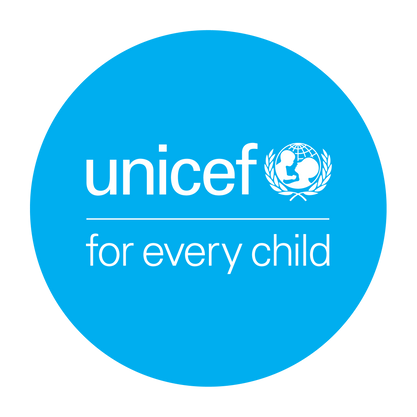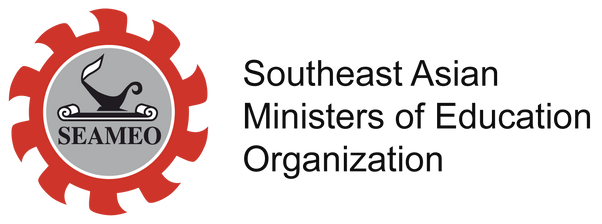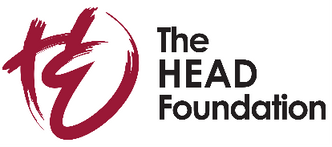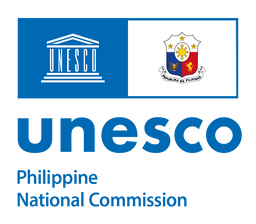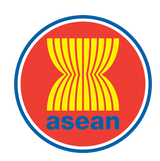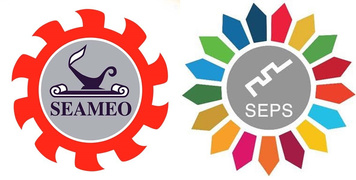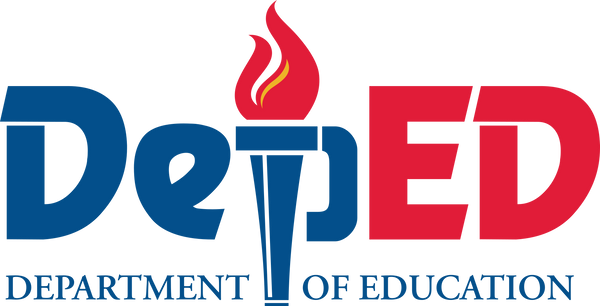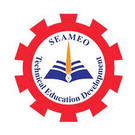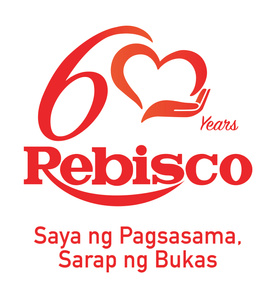


Youth Summit 2023: Transforming Education in Southeast Asia
capitalizes on the successful grassroots initiatives in different communities in the SEA region. There is a strong need to explore these initiatives’ potential to become system-wide reform strategies. The discussions during the 2-day summit focused on successful grassroots solutions and educational innovations around eight thematic areas.
8
thematic
areas
69
innovations and initiatives
200+
participants from 10 SEA countries
Messages
PROF. Leonor Magtolis Briones
Director, SEAMEO INNOTECH
Youth is one of the major thrusts of SEAMEO-INNOTECH because the youth is the forefront of the future.
While Policy makers pass laws, bureaucrats issue memorandums, teachers guide us on behavior and assessments, it is important to hear from the young people themselves. After all, it's your future that's at stake. There will come a time when you will be running your respective countries, occupying positions of responsibilities, and advocating for change.
What sets this event apart from all the others that happened before is that this is led by the youth, for the youth. And so, I encourage the youth to think about what you can expect in your time. While we are usually inclined, especially as grandmothers, to share our experiences back in our time, it is important that you, the youth, take time to think about what you want to happen in the future.
Any resolutions, proposals, and advice that you will come up with as an answer to these questions will be submitted to policy makers, the ministers and heads agencies, the media, and the public. I encourage not just the youth in the Philippines but also the other young regional participants to do the same initiative in your respective countries.
Ms. Maria Melizza Tan
Adolescent Development Specialist,
Education Section, UNICEF Philippines
In transforming education, we need to think of what our learners need in order to succeed in school, in work, and in life.
Digital skills acquisition, for example, was a luxury back in the days. But in this day and age where people, young and old, rely on digital gadgets to socialize, communicate, and learn, acquiring digital skills has become of importance. Transferable Skills, on the other hand, help young learners to be agile and adaptive. They also help build resilience in the face of adversity.
Perhaps we should consider transforming learning rather than transforming just education, to account for non-formal learning channels. Skills development, after all, can take place at different times in various settings and contexts and through various providers.
Ms. Soumaya Maghnouj
Consultant, UNESCO Multisectoral Regional Office Bangkok
Our world is facing major challenges - challenges that our education system, as they are designed currently, are not able to meet.
According to the Oxford Dictionary, transformation is a thorough or dramatic change in the form or appearance. One of the last major transformations in education happened in the early 20th century when democratization of access to education was still forming. It was when the world started really building schools and ensuring that everyone gets at least primary education.
Although there have been some changes in pedagogy and there was provision of computers, the classrooms are more or less still the same. We’re very much overdue for really reshaping our education system.
Ms. Jayathma Wickramanayake
UN Secretary-General’s Envoy on Youth
Education is a fundamental human right, a public responsibility and a global public good. It is a key enabler to achieve the world envisioned in the 2030 agenda for sustainable development, a more equal, prosperous, peaceful and just world for people and the planet everywhere, leaving no one behind. Yet, we are currently experiencing a global education crisis, which is deeply intertwined with other ongoing global challenges such as covid-19 the climate crisis ongoing conflicts and rising inequalities.
The access, quality and relevance of education for children and youth everywhere are at risk, particularly for those most marginalized and vulnerable. This is why in the scope of the Transforming Education Summit hosted by the UN Secretary General in 2022 with the aim to raise the status of education to the top of political priorities and shine a light on the ongoing education crisis. Young people came together to spearhead a global movement for education transformation. Almost half a million young people from over 170 countries and all regions joined forces on a first of its kind Youth Declaration on transforming education. In it, they outline their vision, demands, and commitments to transform education.
Young people must be meaningfully engaged at every step of transforming education as full-fledged partners, not only beneficiaries alongside their governments, education institutions, civil society and international organizations like the United Nations. Young people are at the forefront of driving change, pioneering innovations, mobilizing their peers and communities and working from the ground up every day to transform education.
Mr. Ilan Enverga
Educator
International School for Better Beginnings
UNESCO SDG4Youth
The Youth Declaration plays a core role in the Youth Summit. This is because it drives youth-driven change. There is something special about change that is spearheaded by young people. When young people are empowered to join leaders in co-creating, we always achieve better outcomes.
Are you, the youth, ready to help your education ministries transform your education systems? The truth of the matter is our ministries are implementing solutions that are ineffective. The implemented policies just do not work once they reach the students and teachers on the ground. The disconnect is clearly seen here, and now, the youth are here and ready to address that disconnect between top-down policies and the problems happening on the ground. To the ministries of education, we ask you to acknowledge your gaps. You need to listen and include young people, and those who are on the ground.
UN Youth Declaration
Youth Declaration on Transforming Education
The Youth Declaration is presented as young people’s inputs to the Transforming Education Summit Chair Summary/Secretary-General’s Vision Statement. Its aim is to drive political commitment on the need to transform education and build young people’s ownership over this process.
Southeast Asia Youth:
Call to Action on Transforming Education
We, the youth of Southeast Asia, recognize that our Quality Education is the most powerful tool to empower people and solve the global crises of our world. We are working towards transforming Commitment into ACTION.
Inspired by the Youth Declaration at the Transforming Education Summit, we are gathered here for the Youth Summit on Transforming Education in Southeast Asia on June 27-28, 2023. Over the course of the summit, we've been fortunate to engage in deep and enlightening discussions, enabling us to explore a variety of perspectives and gather a plethora of innovative ideas and working models on the transformation of education.
Our young delegates have demonstrated the utmost dedication to understanding and contributing to the educational landscape in our region, embodying the Summit's spirit of participatory leadership and putting youth at the center of the transformation of education. As the youth, we represent both the present and the future, bearing the immense potential of shaping Southeast Asia's educational trajectory.
As such, we wish to bring to your attention the following key recommendations, which emerged as common themes throughout the sessions:
Recommendations
- Establish a mechanism for harmonization, replication, and scaling-up of the innovations to synchronize youth development efforts by involving and convincing decision-makers to help transform education.
- Converge and strengthen youth-led education innovations in digital, environment education, classroom management, and other contexts by strengthened partnerships and funding opportunities with the relevant ministry and development partners to integrate and sustain the program either into the curriculum or extracurricular needs in education.
- Sustain the discussion and engagement beyond the Summit by organizing the Southeast Asian youth community of education stakeholders and eliminating stratification to sustain the conversations, connections, and collaboration.
- Maximize the use of data and technology for proper information dissemination and the development of youth programs and policies, with continuous monitoring and evaluation of the progress of programs.
These recommendations are born out of rigorous discussions, reflecting a shared vision for an educational system that is inclusive, adaptive, resilient, and future-oriented. They provide valuable insights into the needs and hopes of the young generation for the evolution of education in our region.
In conclusion, we would like to express our gratitude for your ongoing support and commitment to youth empowerment. Our collaborative engagement is critical to the transformative change we strive for in the realm of education.
We strongly believe that by considering and implementing these recommendations, we can foster an environment that not only caters to the changing demands of the 21st century but also nourishes the potential of every learner in Southeast Asia.
We look forward to our continued partnership as we seek to shape an inclusive and dynamic educational future for our region.
We are taking action everywhere throughout Southeast Asia and we hope that we can leverage our solutions and youth action on the ground.






Stakeholders' Response
Atty. Rowell S. Barba
Secretary General, Intellectual Property Office of the Philippines
IPOPHIL is eager to see how you will mobilize the education communities to transform your aspirations into concrete actions. We look forward to innovations that will transform our classrooms, schools, and education system. We hope that in the future you are shaping, respect for IP Rights will be included in this new state of education for the ASEAN Region. IPOPHIL stands in solidarity with you in making the world a better place through education for generations to come.
Mr. Isy Faingold
Chief of Education, UNICEF Philippines
The participants of the Youth Summit 2023 have done an excellent job in preparing the presentations and coming up with concrete recommendations to keep the momentum of the youth summit to ensure that these creative innovations will be sustained—as mentioned by one of the participants, this is just the beginning of our journey towards strengthening youth-led innovations in the region.
There were lots of great ideas and inputs, but two ideas resonated with me the most: (1) the importance of the co-creation of education, and (2) the need to strengthen partnerships and heighten engagement with education stakeholders. UNICEF has been working earnestly to engage more youth in co-creating solutions through several initiatives such as ‘Change the Current,’ ‘Learning to Earning Pathways,’ and the development of micro-certifications.
These projects and other UNICEF initiatives need the help of the youth to scale up to national and regional implementation in countries in Southeast Asia. This summit proved that our youth are capable in leading and developing innovations to transform our society—these ideas might not be well-received at all times by those who are in power but what is important is that the youth is fighting for what they strongly believe in.
Dr. Dexter Galban
Assistant Secretary,
Department of Education, PHILIPPINES
The involvement of out of school youth in the change and transformation of education highlights the value of inclusivity. As mentioned by our dear friends from UNICEF, we plan to keep working on programs such as the Alternative Learning System and expanding it further so we can include anyone and everyone that wants to learn. When we talk about learning education foundation, it must be continuous in nature. There’s a saying in Filipino that fits well with this: “bawat minuto, pwedeng matuto (for every minute, learning is possible).”
Following that thread of thought, I also believe that we can involve the out of school youth through constant communication and collaboration with our partner institutions and working with young people as we continue to design such programs for changing and transforming education. There is, however, a challenge when it comes to understanding the youth and their aspirations: institutions have a difficult time reaching out to them, particularly when it comes to the language and approaches used. More often than not, young people use a different channel of engagement, such as TikTok and Facebook, which are typically not used by government agencies and international institutions.
As part of our efforts in amplifying and building our programs further, we aim to be able to have a conversation with you so that you can co-create and co-design with us on our approaches for the out-of-school youth.
Mr. Ivan Anthony Henares
Secretary General, Philippine National Commission for UNESCO
I want to throw the question back to the youth: What can young people do to make sure that people in power can attain the recommendations?
Your challenge is to revisit these recommendations to ensure that they are realistic, attainable, and supported by evidence because policy-based change demands rigor. Find out what’s happening around you – in the country and in the ASEAN region. Submitting these recommendations is just the beginning. Your commitment to these recommendations must go beyond the Youth Summit.
Ms. Soumaya Maghnouj
Consultant, UNESCO Multisectoral Regional Office Bangkok
Ministries or international organizations don’t always have the answers. Sometimes it’s important to think outside of the box and to shape the system. I appreciate how a lot of the recommendations were about how you wish to continue working together, how you wish to support each other across countries, and I think that’s very important.
At the national level, UNESCO plays a role in facilitating cross-learning among countries, and assisting in scaling up innovations. At the regional level, UNESCO plays a role in bridging the gap between the global Transforming Education agenda and then the local implementation. What we would be able to do is to make sure that the outcomes of this summit be presented to the SDG 4 coordinators network, which consists of government officials responsible for monitoring and advancing the Sustainable Development Goal 4, hoping that the innovations and recommendations generated during the summit would be visible and could potentially influence policy and action.
Dr. Ethel Agnes Valenzuela
Education Adviser on the Future of Education, ASEAN Secretariat
We are currently in the era of Education 4.0. This means we are more connected than ever before, operating as a community where we can learn and collaborate simultaneously. Looking ahead to 2050 when young people will dominate our countries, our aim is to prepare you for a future that is digital and connected. You'll have the flexibility to learn anytime, anywhere – whether in markets or various locations. More countries are embracing the concept of learning cities, where young people can engage in learning no matter where they are. This transformation means education won't be limited to traditional brick-and-mortar schools; instead, we'll be connected everywhere.
We see in the future that the young people will have a space for representation. Among regions worldwide, we have the largest number of young people, and we project that there will be a lot more of the youth by 2050, which is why it's important that we pay attention to the youth's voices. And the Youth Summit participants have shown that the youth are ready to take on important responsibilities.
Firstly, let's explore if you can participate in active decision-making at SEAMEO. This could involve engaging at different levels of decision-making, including discussions with center directors, officials, and ministerial meetings. Remember that you're already a part of ASEAN. There's a body that oversees youth development, addressing your well-being, digitalization, and learning needs. They even hold an annual meeting for youth ministers, providing different levels of representation.
PROF. Leonor Magtolis Briones
Director, SEAMEO INNOTECH
We have been planning the Youth Summit for quite some time. As the event draws to a close, we find ourselves asking; “what will we do after our participants go back to their countries?” So, allow me to discuss our plans. After this event, we aim to meet again with the program team assigned here, as well as the other executives of SEAMEO-INNOTECH to review the concrete recommendations of our youth leaders. I believe that there is still a need for more details and specifics for your suggestions.
Another goal we had in mind after our participants went back to their home countries is to highlight the insights and concrete recommendations from our youth leaders. This will be during the Center Directors meeting in July, and the Ministers of Education of member-countries meeting in November. I believe that the Youth Summit deserves to be focused as it is one of the significant events that took place this year.
As part of bringing attention to and highlighting this event, I intend to invite youth leaders to conduct a learning session for the members of the governing board during the Governing Board meeting of SEAMEO-INNOTECH in October. It is part of my belief that the youth should be included on the board, on par with the other universities here in the Philippines. This is so they will know about the magnitude of the discussions made during this session.
Lastly, we will organize follow-through meetings with UNICEF, UNESCO, and the Department of Education (DepEd) to facilitate discussions concerning the resolutions, suggestions, and advice raised by our youth leaders during this summit. In the case of the Philippines, I would like to say that many of the recommendations you have passed are already being implemented. However, their success remains to be assessed and continued. We reassure you that we will submit your resolutions to the legislators and other executive agencies.
I would like to thank you for coming over—it's like I’m talking to my grandchildren. I love listening to you, I enjoy your laughter, and I love your singing and dancing. I wish you luck in your future endeavors.
- Dissemination of the Southeast Asia Youth: Call to Action on Transforming Education
- Inclusion Youth Representation or designation of a dedicated Youth Program Officer in the SEAMEO Secretariat
- These have been proposed by Prof. Leonor Magtolis Briones at the Center Director’s Meeting in Bangkok, Thailand
- UP NEXT: SEAMEO High Officials Meeting
- Co-establish a safe platform for convergence and open conversation on transforming SEA education
- Co-organize activities to have continuing dialogues
- with other SEA Youth
- current policy and decision-makers
- leaders in education and in related fields
- Co-manage the community; expand the Core Group
SEAMEO INNOTECH Commitments
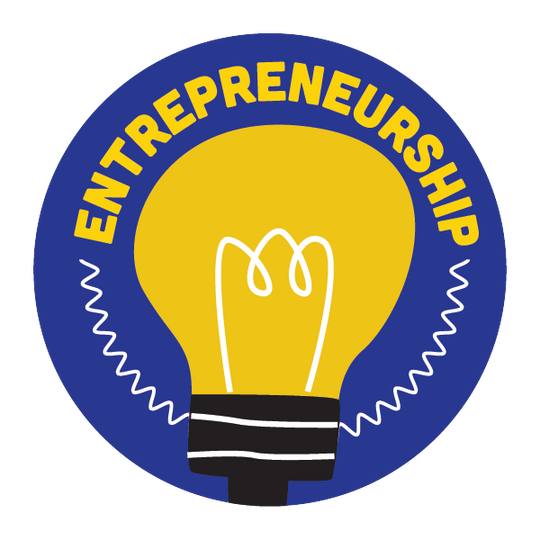
Youth Declaration Articles
- We call upon decision-makers to invest in future-proof skills development, technical and vocational training, apprenticeships, and other relevant opportunities to ensure access to decent jobs for youth, especially members from vulnerable and marginalized communities.
- We especially urge decision-makers to strategically invest in green and digital skills, policies, and strategies to enhance education, research, entrepreneurial opportunities, and decent jobs for youth, especially those who still do not have access to electricity, the Internet, or legal access to online services.
Social Business
Our innovation is a social business, and it contributes to reducing poverty. Our objective is to turn fabric waste into fashionable bags. Together with my team of students, we work during weekends, learn new skill together and get some help from others. We have four processes that we follow: collecting used and quality clothing materials, designing, cutting, and sewing these based on the approved design. We believe that by doing this we are not only contributing to the environmental protection by lessening the fabric waste, but we are also helping students to earn additional income to support their studies and become more independent.
Dyanne Rose Luna
Education Development Center
Philippines
John Victor Abellano
Education Development Center
Philippines
Youth Network Executive Council of Legazpi City (Out of School Youth Leaders)
The Youth Network Executive Council and its Youth Bureaus helped the youth in Legazpi City discover their hidden skills, abilities, and talents to start their small businesses. A lot of them experienced so many hardships in life due to poverty but after attending activities and joining the Youth Network Executive Council, they learned how to dream big and see a bigger picture of the future and to always take opportunities for self-growth. They also learned more about collaboration, communication, creativity, and critical thinking. Aside from leadership and entrepreneurial skills, they were also taught about sexual and reproductive health and encouraged to join volunteering activities like mangrove planting, clean-up drives, and community gardening. And ultimately, they are now sharing their experiences and expertise with other youths and becoming role models to their fellow youths in Legazpi City.
View Presentation
Kyaw Moe Aung
Thate Pan Solutions
Myanmar
kyawmoeaung.tps@gmail.com
Thate Pan Solutions
Bridging the skill gap for youths in Myanmar is a professional provider of flexible and inspiring skill development trainings that assists individuals to leverage their knowledge and abilities. Our mission is to equip Myanmar youths with the skills needed to overcome barriers to participate in the future workforce and benefit from the digital economy. Our innovation is meant to bridge youths with the workplace by offering internship programs for youths to make them ready for work. Our organization has brought Digital Literacy training and Data Analytics training to youths from all backgrounds and in various communities in Myanmar.
Watch video
View Presentation
Kathrina Palomar
Philippine Systems Consultancy with UNICEF, ADZU, and ZYNDA
Karleen Zambas
Philippine Systems Consultancy with UNICEF, ADZU, and ZYNDA
Maayong Pagnegosyo (MAPA)
Youth Empowerment through Entrepreneurship – The Program aimed to capacitate and enable the Alternative Learning System (ALS) Learners of Zamboanga del Norte to start their businesses and earn income to support themselves and their families. The program aims to improve the income-generation capacity among the program scholars by equipping them with entrepreneurial and financial skills as important core life skills for them to take charge of their respective financial futures, with alternatives to earn and confidently participate in modern society.
Christian Madali de Guzman
Technological Institute of the Philippines - Manila
Philippines
E-Cube Concrete: Pulverized Roasted Watermelon (Citrullus lanatus L.) and Pumpkin (Cucurbita maxima L.) Seed Shells as Partial Aggregate in Concrete Production
This innovation (E-Cube Concrete) contributes to education transformation by adapting an innovative idea and applying new techniques in construction or processes in concrete production; wherein learners and young people could think of using community wastes to produce low-cost and eco-friendly concretes that could be used in construction and nation-building. In addition, this project is intended for all of us as beneficiaries specifically the owners and engineers of the different structures as well as the government and the community in saving construction costs and protecting the environment from excessive emission of Carbon dioxide gas in the atmosphere due to concrete production.
Participatory Design Approach to Designing Low Income Housing
The project has impacted upon low-income staffs not only in our department but in the campus as they are living below the living standard due to insufficient housing in our university. The most obvious innovation would be user-oriented participatory approach which is not common in the country. We mainly focus on understanding the users and their context and the goal is to fully satisfy the user with our final product. After lots of engagements with users, we understood that lighting and air flow is a challenge and priority for us. So, we emphasized on giving openings and light wells in our design. We also emphasize to provide community space among each unit conducting families in the building and promoting social values and fulfilling the basic need of users.
Watch video
Blair Panong
Youth Development Alliance of Tagbilaran City (YDA)- DTI Bohol
Philippines
Bohol Gentrep Z (A Youth Entrepreneurship Program for GenZ)
The Bohol Gentrep Z (a youth Entrepreneurship Program for Generation Z O2 Youth) is an innovative and youth-centric program involving a series of entrepreneurial capability training designed to equip the youth micro-entrepreneurs to develop their ability to run and manage their respective businesses.This is a multi-partnership program with the Department of Trade and Industry – Bohol Provincial Office, the Department of Education, the Bohol Chamber of Commerce and Industry, the City Government of Tagbilaran and the USAID Opportunity 2.0 Program.
Solar Green Guardian of Natural Heaven
The final dried product preserved by dehydrating in our indirect high temperature solar dryer results to higher standard of hygiene, significant time and energy savings and added revenue for local agriculturists. This technology is not only one of the best ways for tropical zones, especially in Myanmar but also more economical and efficient compared to traditional open-air drying. This innovation can also generate big opportunities for learning and education across a wide range of sectors, from chemical engineering to entrepreneurship. Educators can help students develop practical skills, encourage a deeper understanding of Science, Technology and Engineering, increase their awareness of sustainable living by incorporating this innovation into the school curriculum.
View Presentation
Andale
Andale aims to make a significant impact on the learning and education sector by sharing our knowledge with university students and encouraging them to explore new ideas. We are part of the extensive training (STEP Programme) and as a trainee, we have gained deeper insights into the business world, which we use to enhance our startup and share our passion. Additionally, we are committed to promoting innovation in education by introducing drivers and other members of the transportation community to the benefits of technology. By doing so, we hope to create a more accessible and equitable learning environment that empowers individuals to thrive in the digital age.
Watch video
View Presentation
LEaP (Learning to Earning Pathways)
Andale aims to make a significant impact on the learning and education sector by sharing our knowledge with university students and encouraging them to explore new ideas. We are part of the extensive training (STEP Programme) and as a trainee, we have gained deeper insights into the business world, which we use to enhance our startup and share our passion. Additionally, we are committed to promoting innovation in education by introducing drivers and other members of the transportation community to the benefits of technology. By doing so, we hope to create a more accessible and equitable learning environment that empowers individuals to thrive in the digital age.
Watch video
Micro-certification
Micro-certification is a way for ALS learners to receive credit for the degree to which they attain a set of pre-identified general, transferable capabilities that are valued by employers and necessary for learners to thrive as workers and citizens. A micro-certificate specifies what the learners know and can do, thereby providing a prospective employer or education recruiter with more information than a certificate that does not similarly specify the skills acquired by the holder. This approach is seen to increase a learner’s prospects of gaining employment or entering learning or training opportunities, regardless of whether they complete the ALS Program or pass the A&E Test.
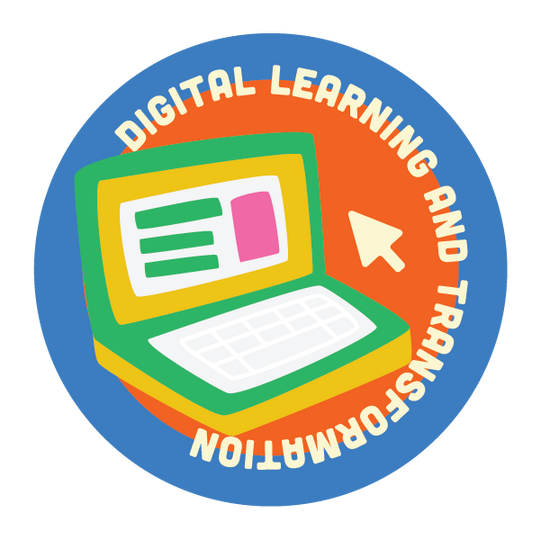
Youth Declaration Articles
- We call upon decision-makers to promote and nurture academic freedom, foster an education that advances critical thinking, imagination, communication, innovation, socioemotional, and interpersonal skills, and invest in effectively combating misinformation;
- We call upon decision-makers to recognize and invest in non-formal education programs and organizations, particularly those that are youth-led, as an integral part of the right to education and a key approach to promoting the development of personal and collective values and civic engagement of children and youth;
- We especially urge decision-makers to strategically invest in green and digital skills, policies, and strategies to enhance education, research, entrepreneurial opportunities, and decent jobs for youth, especially those who still do not have access to electricity, the Internet, or legal access to online services;
- We demand decision-makers to provide quality and relevant training, professional development, necessary facilities, appropriate working conditions, and an innovative, safe and enriching environment for teachers, including by raising the status of the profession, and particularly by working with young teachers, women teachers, refugee teachers, and representatives of teachers’ unions;
- We urge decision-makers to invest in the digital infrastructure of education and affordable, dignified, safe, and stable access to digital connectivity for all, to aid learning and close the digital divide.
Youth Innovators' Space and Incubator Program
The Youth Innovators’ Space and Incubator (YISI) Program gives underserved and marginalized youth in the community the opportunity to be job creators rather than job seekers. This is one of the community’s first start-up incubators for youth and provides the network, resources, and skills development for youth to initiate their own social enterprise by the end of the course. The YISI has supported over 101 entrepreneurs since 2020 and has helped launch 10 businesses.
Definda Putri Arisna
Content Research Department
Indonesia
defindaputria20@gmail.com / hellodefinda@gmail.com
Nabastala Semesta; #FromStudentToStudent Platform
Nabastala Semesta is an Indonesian youth-led organization that aims to empower students to provide and seek peer support through social media. Through the organization's platform, students share, receive, and exchange ideas, thoughts, and perspectives on their personal learning and growth experience. They help each other address common concerns such as university applications, self-improvement, and many others. The organization believes that education transformation can happen #FromStudentToStudent.
English for Lao Children Program (Parts 1 and 2)
English for Lao Children Part 2 has been implemented by Kiettisack International School since 2019. The program focuses on fun and engaging English language learning videos, which are shown through the Lao National TV Program.
View Presentation
Hazwan Hamdan
Bijak.Tular
Malaysia
hazwanhn@gmail.com
BIJAK TULAR - Empowering Digital Teenagers
BIJAK TULAR is a media literacy awareness workshop aimed to educate secondary school students to be aware of Fake, False, and Fabricated (3F) news on social media. In BIJAK TULAR, participants learn basic skills to identify 3F news and take the necessary action. BIJAK means 'smart' while TULAR means 'to share something', so the workshop educates teenagers to responsibly share online. Thirty students of SABK MEDI were the workshop participants, and they have already acquired the basic BIJAK TULAR skills.
Danachelle Garcia Basco
Luis Aguado National Highschool
Philippines
danachelle.basco@deped.gov.ph
Science Creative Innovation through TikTok (SCITok)
Science Creative Innovation through TikTok (SCITok) is a non-traditional learning enhancement that challenges students' creative thinking and video editing skills. Through SCITok, students create short, fun, creative, and educational TikTok videos to present scientific ideas. Through this initiative, science concepts became more relatable and students discover a variety of options for activities and ease of learning.
View Presentation
Sharran Loganadzan
International Youth Center Foundation Kuala Lumpur
Malaysia
sharran99sjh@gmail.com
ONLINE SESSION
EduCollaborate
EduCollaborate is a one-stop center platform designed for learners and educators to access resources, share knowledge and best practices, and foster global collaboration. The platform helps young teachers across the ASEAN region to connect with and learn from each other, address education challenges, develop new content and strategies, and promote lifelong learning.
Watch video
View Presentation
Veck Basinag
Pointwest Digital
Philippines
Mac Aydinan
Pointwest Digital
Philippines
The Power of Data for a Data-driven Education, Pointwest
Pointwest will explore the role of data in elevating the learning environment and the total digital learning experience in educational institutions
Dirham Gumawang Andipurnama
Class Teacher in a special school for students with autism and intellectual disability
Indonesia
"Jawara Menabung" App to Improve the Ability to Understand the Concept of Saving Money
Jawara Menabung is an Android app that teaches young people the concept of saving money. Through games, simulations, and interactive worksheets, the app teaches various concepts of financial literacy, from the basics, such as using an ATM, to more complex ideas like saving money in a bank.
View Presentation
ASEAN Digital Literacy Programme (ADLP)
ASEAN Digital Literacy Programme (ADLP) is a regional programme that aims to combat misinformation and disinformation by providing digital literacy training for youth, teachers, parents, community leaders, and government officials in collaboration with local implementing partners.
Through ADLP, youth, teachers, and government officials are recruited as Master Trainers. Training materials and toolkits were made available to help the Master Trainers in their training rollout. A curriculum entitled #DigiTalino was also developed. It is a 2-hour workshop designed to teach the underserved sectors about digital literacy and equip them with the tools they need to recognize and fight against misinformation and disinformation.
Virtual Field Trips in the Teaching of A Level Geographical Investigations
The COVID-19 pandemic compelled the teachers of the Geography Unit of Temasek JC, Singapore to use Virtual Reality (VR) to "bring" students to field sites. They used 360° videos, Google Cardboard, and VR to simulate an authentic context for students to conduct virtual fieldwork, while in the classroom. The use of VR was effective in circumventing the challenge of not being able to physically visit field sites during the pandemic. The use of VR also enhanced the spatial representation and visualization skills of A Level Geography students.
BUNEY Network: Journey Buddies
BUNEY Network - Journey Buddies is a business educational organization that provides services by connecting eligible tutors to students across Vietnam. BUNEY has become a companion to students' path of self-development. Through BUNEY, students and their parents save time, money, and effort to find a suitable tutor for one-on-one or small group learning. BUNEY has successfully connected over 100 tutors and students across Vietnam.
Watch video
View Presentation
Learning passport and support to DepEd Digitalization
The Learning Passport (LP), a global initiative delivered by UNICEF and powered by Microsoft Community Training designed as a digital solution to close the learning poverty gap. It is an online, mobile, and offline tech learning management platform enabling high quality, flexible learning.
UNICEF Philippines has deployed the offline packages to multi-grade schools, enabling access to digital content and benefitting teachers and students from remote schools and those affected by disasters. The packages will soon be deployed through ALS to enhance the provision of flexible learning opportunities to vulnerable young people.
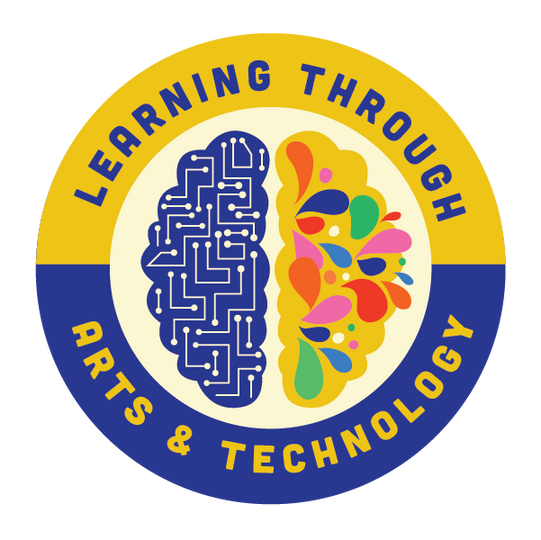
Youth Declaration Articles
- We demand decision-makers to invest in education for sustainable development across curricula, particularly climate education to build skills and knowledge needed to build resilience, mitigate the impacts of the climate crisis and ensure climate justice, as well as invest in early-warning systems and resilient infrastructure to ensure safety, security, and education continuity;
- We urge decision-makers to promote a broader and holistic vision of education that is founded upon the principles of peace and human rights and one that enables every young person to lead a fulfilling, motivated, enjoyable, and quality life;
- We call upon decision-makers to promote and nurture academic freedom, foster an education that advances critical thinking, imagination, communication, innovation, socioemotional, and interpersonal skills, and invest in effectively combating misinformation.
- We call upon decision-makers to center the mental health and wellness of all learners within and beyond the classroom throughout our educational journeys, also extending to out-of-school children and youth, as well as create the optimal environments to promote recreational activities, such as arts and sports, in order to generate complements in education equitably in all children and youth;
- We especially urge decision-makers to strategically invest in green and digital skills, policies, and strategies to enhance education, research, entrepreneurial opportunities, and decent jobs for youth, especially those who still do not have access to electricity, the Internet, or legal access to online services
- We urge decision-makers to invest in the digital infrastructure of education and affordable, dignified, safe, and stable access to digital connectivity for all, to aid learning and close the digital divide;
Watch video
Traditional artwork and painting
The Art workshop for Painting will be presented in three parts: First is a short artist introduction with education and past work, sharing art shows (solo and group here and abroad) and other art related accomplishments. Second will be discussing some art info, important of coverage of art in the society, effect from the pandemic and art as tool for art therapy. Lastly for the participants to understand the basic elements in art, the introduction of the materials they will use and make their own artwork in 30 minutes as they will be using paints at board papers and will be displayed and take home.
Watch video
Exploring Ethical AI Art
This Art Workshop, led by artists Hoche and Byron, is a captivating journey that will enable you to bridge the gap between art and technology, where imagination and AI converge to redefine artistic expression. Prepare to unlock your creativity and embrace the ethical and transformative power of AI art generators. Together, let's create art that inspires and uplifts while honoring the values of ethical artistry.
By the end of this workshop, you will walk away with a solid foundation in using AI art generators, an understanding of ethical considerations, and the ability to create captivating art while maintaining responsible practices. Whether you are a seasoned artist or new to the world of AI, this workshop will empower you to embrace the limitless possibilities that AI art generators offer.
Lương Ngọc Chung
Rivers of Life
Vietnam
chung.luong.210195@student.fulbright.edu.vn
(Re)creation of traditional heritages in climate action: Southern Vietnamese folk music tells the climate change in Mekong Delta
This songwriting and social action project has produced two virtual concerts featuring 20 self-written songs about climate change in the Mekong Delta, inspired by Southern Vietnamese reformed music and folk music engaging over 200 youths and parents across Vietnam, with thousands of total interactions across the globe.
Through the group, members have significantly transformed their mindsets and behaviors towards eco and less-emission. This project is being supported by the British Council Vietnam and has been featured by several local broadcast channels and the BBC.
Watch video
View Presentation
SUGPAT-Alternative School for Peacebuilding and Arts (ALSPA)
Starting off as an Arts for Development Project to address the need of youth and adolescents displaced by the 2013 Zamboanga Siege, the Programme has evolved into SUGPAT-ALSPA to be more responsive to the needs of out-of-school youth.
The SUGPATALSPA is an alternative learning center dedicated to capacitating out-of-school youth in creativity, innovation, and 21st-century skills through visual arts and theater. The school envisions to form not only learners but leaders who will be champions of adolescent development and participation in the out-of-school youth sector. As the school puts a premium on creativity as a thinking model, the fellows are expected to become creative problem solvers who will be equipped with tools and processes to analyze social problems and find innovative solutions to address perennial and complex problems in their communities.
View Presentation
Lembaga Kesenian Bunga Tanjung
Sewindu Project aims to preserve the traditional arts and culture in Indonesia. It started in 2014 and until now is still growing strong and has engaged students in various communities in Indonesia.
The public performances enabled the students to increase their knowledge about the value of traditional arts, dance, and culture, and at the same time, hone their skills in these performing arts. Communities became more aware of the importance of preserving their traditional arts and culture. This can inspire other communities and young people to learn how to love and preserve the traditional arts and culture. It promotes a sense of belonging, community, and unity.
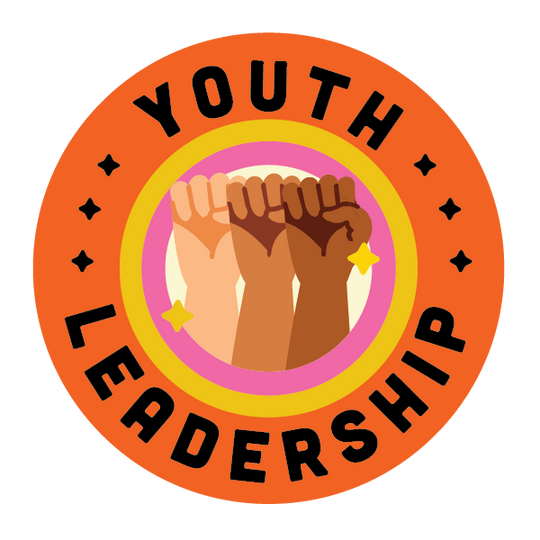
Youth Declaration Articles
- We demand decision-makers to invest in education for sustainable development across curricula, particularly climate education to build skills and knowledge needed to build resilience, mitigate the impacts of the climate crisis and ensure climate justice, as well as invest in early-warning systems and resilient infrastructure to ensure safety, security, and education continuity.
- We urge decision-makers to promote a broader and holistic vision of education that is founded upon the principles of peace and human rights and one that enables every young person to lead a fulfilling, motivated, enjoyable, and quality life.
- We call upon decision-makers to promote and nurture academic freedom, foster an education that advances critical thinking, imagination, communication, innovation, socioemotional, and interpersonal skills, and invest in effectively combating misinformation.
- We call upon decision-makers to recognize and invest in non-formal education programs and organizations, particularly those that are youth-led, as an integral part of the right to education and a key approach to promoting the development of personal and values and civic engagement of children and youth.
- We especially urge decision-makers to strategically invest in green and digital skills, policies, and strategies to enhance education, research, entrepreneurial opportunities, and decent jobs for youth, especially those who still do not have access to electricity, the Internet, or legal access to online services.
View Presentation
Youth For Better: an SDG-centered Curriculum for Philippine Basic Education
The program had a massive and meaningful impact on students, their teachers, parents, and thousands of community stakeholders and beneficiaries. The primary beneficiaries, the K-12 students, demonstrated increased student engagement, academic performance, and strengthened self-esteem because they were empowered to lead SDG-driven campaigns to help the community. The driving force behind the program, the teachers, notably reignited their calling to the teaching profession as they aligned their teaching to real-world issues that had immediate real-world impact. Parents were influenced to adopt more sustainable lifestyles at home as they supported their children’s efforts. Through the projects of the students, over 7,000 stakeholders and beneficiaries in the community were helped in one school year.
Ei Mon Kyaw
Mote Oo Education
Myanmar
misseimonkyaw23@gmail.com
Encouraging Active Citizenship in the Classroom in Myanmar
The "Encouraging Active Citizenship in the Classroom in Myanmar" project has immediate results and impacts on building the capacity of alternative higher education providers to deliver active citizenship lessons in different classroom settings. The project has produced civic content videos that aim to develop civic knowledge, skills, values, identity, participation, community and sense of belonging, communication, leadership, decision-making, and resilience in crisis. The primary beneficiaries of the project are 20 young teachers from different alternative higher education and post-secondary institutions in Myanmar and the border communities. The project hopes to benefit more people from cascade training and knowledge sharing.
Youth Agvocates Project
Providing food access through local food production is essential in achieving food security. The Urban Community Microfarm Project (UCMP) of KAYA NA, Kids Who Farm, and GSK CDO, a Cagayan de Oro-based advocacy initiative to create sustainable kitchens through gardening, recognizes the vital role of the local community, especially women and youth, in crafting local food security solutions. Tapping into these sectors is a strategic opportunity to advance the advocacy of community participation in the issue of food and agriculture and create a platform for them to create lasting community impacts.
View Presentation
Youth Development Alliance
The Youth Development Alliance (YDA) is an innovative strategy to promote multisectoral partnership and collaboration as a catalyst for youth engagement and empowerment. It acts as a critical driver of out-of-school youth program development and implementation by facilitating three critical processes: i) multisectoral partnership and collaboration, ii) youth empowerment, and iii) data-based collaborative planning and strategic decision-making.
While each alliance member continues to pursue its own organizational mandate, through the alliance, these various mandates come together in an integrated and coordinated fashion with a shared focus on out-of-school youth development.
Watch video
Jim Lester Triño
Positive Youth Development Network with UNICEF
Philippines
Young Heroes Initiative
Adolescents from Angeles and Valenzuela City were trained on how to be youth leaders who can advocate for support/interventions to address issues related to violence against children and online sexual abuse and exploitation. These youth leaders developed/co-created communication materials on VAC and OSAEC which are now being supported by the Council for the Welfare of Children and Local Council for the Protection of Children in Angeles City and Valenzuela City. Further, they were able to advocate for the inclusion of representatives of children and youth in the LCPC of Angels and Valenzuela Cities.
Alfred Dicto
Positive Youth Development Network with UNICEF
Philippines
alfred.dicto@pydn.org
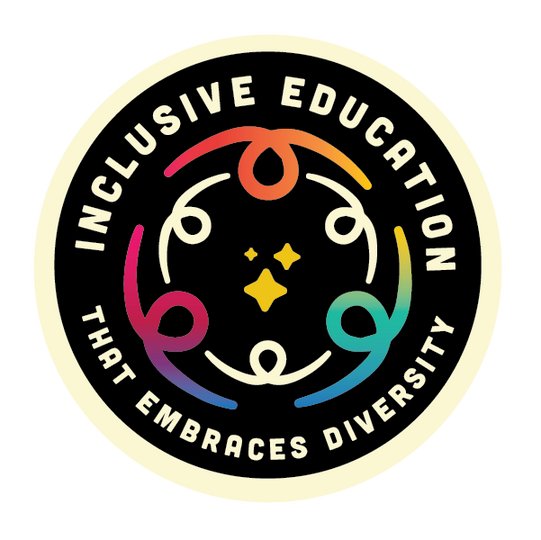
- We demand decision-makers to invest in gender-transformative education to create a present and future that is feminist, equitable, and free from harmful gender stereotypes.
- We demand decision-makers to ensure the provision of quality comprehensive sexuality education for all learners in and beyond schools.
- We call upon decision-makers to invest in inclusive education that embraces diversity and ensures the full participation of all students in the same learning environment regardless of ability, ethnicity, religion, legal status, gender, psychosocial needs, marital status, sexual orientation, caretaker role, and any other discriminating factor.
- We demand decision-makers to eradicate all legal, financial, and systemic barriers preventing all learners, particularly migrant, refugee, and displaced youth, from accessing and fully participating in education - such as lack of recognition of prior learning, lack of recognition of academic documents, barriers related to transitioning from one level of education to another, and more.
- We urge decision-makers to build a safe learning environment for all, including online, devoid of bullying, harassment, physical, sexual, psychological, and gender-based violence, discrimination, racism, sexism, xenophobia, ableism, and ageism.
- We demand decision-makers to invest in social protection to support the educational journeys of all children and youth, especially girls and young women, refugee youth, young persons with disabilities, indigenous youth, and more, while simultaneously ensuring that effective and efficient strategies be put in place to have out-of-school children and youth back in school.
Youth Declaration Articles
Bui Y Nhi
CHAM Project
Vietnam
bynforwork@gmail.com
Cham Project
It is a non-profit project that aims to empower young people and women with disabilities in Vietnam to be the best version of themselves without barriers. Cham Project has reached around 200 young people and women with disabilities in Vietnam as the direct beneficiaries of the project with more than 3000 followers on social media. A series of seminars, training, and workshop was organized in 2019, 2020, 2021, and 2022 with topics related to sexual reproductive health rights, gender-based violence, and mental health problems to raise participants' awareness about the above issues and how to cope with those.
View Presentation
Rachna Thim
Bridge the Gap
Cambodia
rachnathim@gmail.com
Bridge the Gap
The project is a pandemic-resilient program consisting of innovative STEAM Education initiatives to be delivered in a supportive and gender-inclusive environment. This is also designed to inspire and empower young Cambodian girls to confidently follow their dreams on a STEAM pathway and take their rightful place among Cambodia’s future scientists and innovators. Activities include a mini STEAM Digital Campaign, STEAM Digital BootCamp, and mini STEAM Essay Writing Contest. Fifteen (15) female high-school students were recruited to join the Digital BootCamp along with 5 female mentors, after training completion, they were supported to run five community projects in a group of three. STEAM Essay-Writing Contest concluded successfully with three Cambodian winners awarded.
Khuzaimah Samporna Maranda
Thuma Ko Kapagingud Service Organization Inc.
Philippines
SEY(Socially-Excluded Youth) as Active Citizens for Social Cohesion, Understanding and Tolerance
The immediate results of our intervention in the areas where we work enabled the young people to feel that they are not alone, that despite the longingness they experienced they were able to avail of interventions and programs which opened doors for new opportunities, and they were introduced to our partners who guided them. The socially excluded youth are given the platform to think about their community issues as young people capable of offering solutions which they have worked on since our engagement. We have also allowed the youth-mandated offices (LYDO) to engage the socially excluded youth (SEYs) in their programming and invite them in their youth-intended activities. With this experience, we have transformed the image of the young people to become catalysts for community building and peacebuilding.
View Presentation
Giving a Better Chance Program
Since the beginning of the program on February 16th, 2021, it has helped 1500 rural Laotian underprivileged students attend formal school, taught free English to 80 students, helped 40 of those students speak the language fluently, and coached 5 students to receive scholarships to study abroad. Additionally, we advocated for gender equality, and work to stop violence. We were able to resolve a case of human trafficking that involved one student and two elderly foreign nationals and were fortunate that the police was alerted which led to the arrest of the said foreigners.
View Presentation
Rajasurang “Prim” Wongkrasaemongkol
YPEER Asia Pacific
Thailand
prim9000@gmail.com
AI Reader
AI Reader is an innovative educational device for the blind and visually impaired. With the use of AI and machine learning, the device can read out loud the contents of any book in Thai, enabling the blind to access any literature and quality education with ease and independence. This AI Reader innovation directly impact the lives of blind people through better-quality education, accessibility, and inclusion of all content, all of which will promote long-life learning. This innovation enhances the accessibility that opens up opportunities in life for the blind and ensures that they can enjoy literature for education and leisure.
Project PUNLAPIS
Through WEngaged PH, we were able to make a significant impact on education and learning in our community. Our Project PUNLAPIS provides learning supplies and devices to students in the community. Other WEngaged's initiatives include: planting trees through the GREENVOLVED project, honoring educators through GAWAD PAMANA project, training teachers in public speaking through PROJECT SPEAK-UP, and lastly, helping the community in WORLD CLEAN-UP DAY by cleaning up the community and providing groceries to senior citizens from the recycling earnings.
All these initiatives are aligned with our vision of providing education and social services access to needy students, promoting eco-friendly environments and sustainable livelihood programs, and building local solutions to address the most pressing challenges in mental health, poverty, and economics.
Empowering young women to be change agents for GBV (Gender-Based Violence)
The project primarily aims to empower young women to be change agents to end gender-based violence (GBV). It empowers young women to be confident and build their network within the urban and rural areas to exercise their rights to reduce all forms of violence and discrimination against women and girls including campaigning for women’s rights and gender justice. After three years of implementation, by using the Gender Café methodology, the 20 recruited young women gained confidence to the point of challenging the social norm using the social media platform. These young women did peer-to-peer mentoring to another 20 young women aged 18-25 years old. Some of them became leaders of the feminist movement which aims to end GBV against diverse girls and women which has become part of the One Billion Rising campaign - a global campaign to end rape and sexual violence against women.
View Presentation
Ma. Jessica Pepito Meleganio
TATSULOK (Youth Organization of CHILD Initiative of Bacolod City)
Philippines
Child Development Session
As a product of the Child Development Session, I am proof that the initiative triggers the advocacy I am now living for. As we aim to protect and empower youth, the set-up of our agenda can be community-based and school-based. The children involved in this project became productive youth of society. We are not just impacting the youth but also impacting the communities they are part of. Youth Facilitators go through consistent training, workshops, and seminars to prepare them and sustain knowledge-based agenda to achieve the objectives of the program. Our system works collectively—the Youth Organization and Facilitator’s inputs and views are heard and acknowledged. The youth who are part of this program is also excelling in different fields—academics, career and advocacy. Our Child Development Sessions generated an empowered, competent, and productive youth, faithful to our vision of Championing Children as Agents of Change.
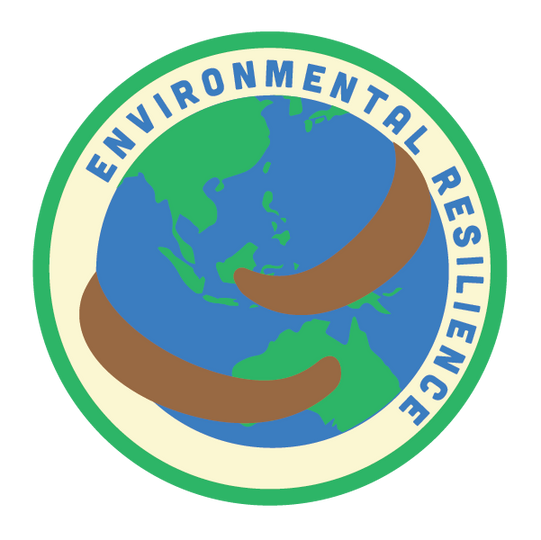
Youth Declaration Articles
- We demand decision-makers to invest in education for sustainable development across curricula, particularly climate education to build skills and knowledge needed to build resilience, mitigate the impacts of the climate crisis and ensure climate justice, as well as invest in early-warning systems and resilient infrastructure to ensure safety, security, and education continuity.
- We urge decision-makers to promote a broader and holistic vision of education that is founded upon the principles of peace and human rights and one that enables every young person to lead a fulfilling, motivated, enjoyable, and quality life.
- We call upon decision-makers to promote and nurture academic freedom, foster an education that advances critical thinking, imagination, communication, innovation, socioemotional, and interpersonal skills, and invest in effectively combating misinformation.
- We especially urge decision-makers to strategically invest in green and digital skills, policies, and strategies to enhance education, research, entrepreneurial opportunities, and decent jobs for youth, especially those who still do not have access to electricity, the Internet, or legal access to online services.
Malaysia Vetiver Bioremediation and Xiamen University Malaysia
The Malaysia-Thailand Vetiver Bioremediation (MYS-THA Vetiver BioR) project aims to increase awareness of soil degradation and propose the idea to promote soil regeneration and minimize the impacts of climate change while making the land usable for various purposes through phytoremediation.
This project increases the level of environmental awareness and climate volunteerism among the youths through the interactive, non-classroom-based, and outdoor hands-on learning experience of Vetiver bioremediation at the affected sites in Malaysia and Thailand. Through Vetiver planting, the project targeted restoring a minimum of two affected sites in Malaysia and Thailand, eyeing to regenerate land for agricultural, farming, and recreational activities.
Siraprapa Mahanil
Mae Fah Luang University
Thailand
Malaysia-Thailand Vetiver Bioremediation (MYS-THA Vetiver BioR)
This project on the Thailand sub-project component of the Malaysia-Thailand Vetiver Bioremediation (MYS-THA Vetiver BioR) aims to increase awareness of soil degradation and propose the idea to promote soil regeneration and minimize the impacts of climate change while making the land usable for various purposes through phytoremediation.
Through this project, students in different age groups will be exposed to hands-on activities and be aware of vetiver's importance and application. The local farmers are also involved in the implementation. Aside from planting vetiver, the participants in the project learned soap making and how to improve soil conditions. Over 1,000 vetivers were planted locally to help with soil erosion.
Watch video
View Presentation
Change the Current
Phase 1 of Change the Current (CTC) aimed to maximize the suitability and flexibility of co-curricular interventions to advocate for Climate Change Adaptation Mitigation (CCAM)-focused learning and behavioral change. It facilitated adolescent empowerment and civic engagement through participatory and meaningful community-based climate action.
Phase 2 aims to scale up the initiative by training teachers to effectively integrate climate change education into their lessons and activities. In addition, the Programme looks into strengthening a climate education and action community of practice in the country.
Precious Plastic Vientiane Team
Plastic waste is a big problem. To help address this concern, a youth-led project called Precious Plastic Vientiane was founded. The project is run by youth to help solve the plastic waste issues in Vientiane capital through upcycling plastic waste into new valuable products like keychains, cup holders, and jewelry under a small grant from the UNFPA Laos. The team built donation boxes to collect water bottle caps which are being used as raw materials for the different upcycling products.
The project addresses environmental concerns such as plastic waste and trains and mobilizes the youth to engage in innovative ecological and social action.
Lsystem Platform
The Chiangrai province and Northern Thailand have been dealing with severe air pollution for over six years. The Chiangrai Green Energy City project features to combat this issue by creating sustainable solutions, preserving local culture, and promoting community products. The project has helped local communities by creating job opportunities and educating students on climate change and disaster preparedness. The "100 million trees for Northern Thailand" campaign aims to restore forests and wildlife while providing a source of income for locals. The success of the Chiangrai model is attributed to the cooperation of all sectors, including the national and local governments, local communities, schools, and youths.
Carbon Farming School
Carbon Farming School is one of the IGAF Eco-projects aiming to educate students about climate change through carbon agroforest activities. The Carbon Farming School educates Indonesian students about utilizing low-carbon agriculture and forestry management activities. By integrating these activities into the informal curriculum, the students have started to contribute to achieving SDG 2, SDG 13, and SDG 15. The activities in the Carbon Farming School include carbon agroforest education, social forestry, land rehabilitation, “biopori” making, etc. These practices on low-carbon related activities are integrated into their school's curriculum and through games and quizzes for youth.
Solving Soil Salinity Problems by Using Soil Conditioners
This project introduces locally produced organic soil conditioners to help solve soil salinity to improve the farmer’s yield. Although there are commercially available soil conditioners that farmers can use in preparing the soil, these products may affect the environment in the long run.
The soil conditioners were bio-fermented solution from golden apple snails and banana peel and were sprayed into the soil during soil preparation. It was found that soil amendment with biofertilizer containing eggshell gave lower soil electrical conductivity or salinity than the formula without eggshell. Using organic soil conditioners not only solves the soil salinity problem but also promotes environmental protection and conservation.
View Presentation
Young Climate Leaders (YCL) Program
The Young Climate Leaders (YCL) Program focuses on inclusive and transformative climate education for Filipino youth facing the growing threats of a changing climate. The program aims to hone the next generation’s climate leaders to take the lead in advancing climate action by providing foundational knowledge on climate science, social change, youth empowerment, and standard leadership skills through an eight-week hybrid training and development program.
The Youth Strike 4 Climate - Philippines is partnering with schools through an internship program or connecting directly with the youth, including out-of-school and indigenous youth, through a fellowship program.
View Presentation
Mao Choronai
Saint Francois General Knowledge and Private Technical High School
Cambodia
Protection of the environment in Cambodia’s Kep coast
The project aims to promote biodiversity preservation and environmental knowledge among students on Cambodia’s Kep coast. Through environmental education, people learn to respect nature and understand the importance of addressing environmental challenges, such as reducing plastic usage and pollution and protecting forests and ecosystems.
The project supports the government’s environmental protection goals and contributes to a more cohesive society through civic involvement. It is crucial for everyone to unite and make a positive impact on environmental conservation, ensuring a safer and cleaner environment.
Youthniversal Collaboration for Sustainability (YC4S)
The youth leaders from YC4S initiate SDG-driven community development projects that significantly impact learning and education. The key issues the community projects address include poverty, inequality, discrimination, and environmental and social justice. These projects create a conducive environment for learning and development. The projects involve community participation and engagement, which fosters a sense of ownership and responsibility toward education. This further facilitates increased community involvement in education and a greater appreciation of the importance of education. Overall, the projects have directly and positively impacted learning and teaching, creating a better future for individuals and communities alike.
Watch video
Thanapon Khanthawichai (Kevin)
SEAMEO Regional Centre for Sufficiency Economy Philosophy for Sustainability (SEAMEO SEPS)
Thailand
SEPS Regional Youth Camp
SEAMEO SEPS initiates the Youth Activity called “SEP Regional Youth Camp” to support youth and children in learning and conceptualising how they apply the philosophy of Sufficiency Economy complied with the UN’s Sustainable Development Goals (SDGs) into their lifestyles. Additionally, they will be strengthened their skills towards the future handling with social complexity, environmental issues and other disruptions which is believed to help them become quality global citizens.
View Presentation
From Nasty to Beauty: Let's Plant a Tree (creation of a pocket forest)
Despite its reputation as an ecotourism conservation area, Puerto Galera in Oriental Mindoro, Philippines, is not immune to challenges posed by the climate crisis. In response to this pressing issue, the project “ From Nasty to Beauty: Let’s Plant a Tree aims to contribute to the ecological conservation of the area. Working in partnership with local community stakeholders like the Puerto Galera Man and Biosphere Reserve Council, the project highlights establishing a pocket forest comprising Caballero and Mahogany Trees and a mini coffee plantation. This initiative is a tangible reminder for “Galerians” to embrace sustainable, just, and democratic resource utilization practices. By doing so, the community is better equipped to address the effects of the climate crisis.
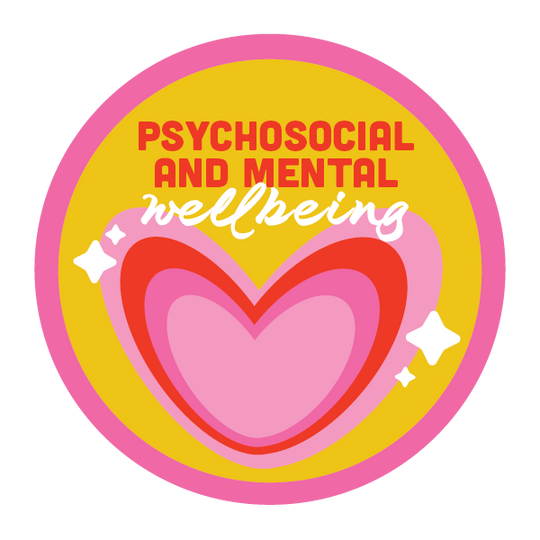
Youth Declaration Article
- We call upon decision-makers to center the mental health and wellness of all learners within and beyond the classroom throughout our educational journeys, also extending to out-of-school children and youth, as well as creating the optimal environments to promote recreational activities, such as arts and sports, in order to generate complements in education equitably in all children and youth.
- We call upon decision-makers to promote and nurture academic freedom, foster an education that advances critical thinking, imagination, communication, innovation, socioemotional, and interpersonal skills, and invest in effectively combating misinformation.
Children Empowerment Through Community Storytelling
Makiramdam is a passion project inspired by the power of storytelling. Its impact has been incremental, but it is steadfast in its goal to serve more communities through sustained learning and continuous engagement. Through storytelling, it has reached schools, orphanages, indigenous communities, and more. Makiramdam serves as a platform to create greater awareness on topics such as women empowerment, environmentalism, sexual exploitation, non-traditional families, down syndrome awareness, gender, world history, martial law, and inspirational figures. It continues to expand the advocacy of accessible information to help grow and nurture curiosity, empathy, critical thinking, creativity, and more among Filipino children and youth, one book at a time.
View Presentation
Student leadership and youth-led innovation: transforming school culture by the youths and for the youths
This simple initiative highlights the power of student leadership. Student leadership in the form of the Student Council in the school has facilitated a re-organization of its internal structure and processes, which led to an envisioning exercise among the student leaders on the change they wanted to see. The activity generated ideas and needs that could be met within the school. The Student Council initiated activities to build a positive school culture and learning environment for all.
Watch video
View Presentation
Systematic integration of Socio-emotional Learning into Interventions for Children-in-Conflict-with-the-Law (CICL)
This program aimed to harmonize psycho-social and educational interventions offered by government agencies and by the local community to facilitate a strategic, holistic, cohesive, and needs-based service provision that will equip CICL with the foundation knowledge, skills, and attitude to ‘turn a new leaf’ and lead productive lives. Socio-emotional skills involve an individual’s ability to develop healthy identities, manage emotions, accomplish personal and group goals, feel and demonstrate empathy for others, build and sustain supportive relationships and make caring decisions for all.
Results showed that majority of the participants demonstrated an increased self-awareness, more positive attitudes, and a high degree of appreciation for the SEL program.
View Presentation
The Soil Project
The Soil Project provides an international education experience and training primarily through a context-based approach with the most affordable cost. In this project, the learners contribute tuition based on their financial resources and capacity. This is a pioneering alternative education at the higher education level in Vietnam with a holistic and self-directed approach and relevant and practical learning for personal life. It covers topics such as gender issues, culture and identity, self-reliance, personal finance, dealing with psychological problems, and contributing to social changes (system thinking, big-picture activism, rethinking economics, etc.). The Soil Project's expanding international network, mainly in Asia and Africa, provides learners countless opportunities for self-designed experiences in cross-cultural contexts.
It's Okay: Tackling Mental Health With Socioemotional Learning (SEL)
This project has successfully trained 177 schoolteachers and 831 students on basic socioemotional learning (SEL) to help them manage their feelings and promote their mental well-being. The training includes positive self-talk, which supports positive affirmation and converts negative thoughts into optimistic perspectives. It also features student mental health week, where research-backed activities, such as nature walks, dance parties, gift exchanges, and art therapies, are organized. Over 110 students participated in the first mental health week. The project covers primary schools with kindness outreach activities comprising puppetry and origami to help children become more comfortable and in control of their emotions.
Watch video
Kaibigan Chat line
Kaibigan chat line is a social innovation that provides free, familiar and accessible mental health and psychosocial support to Filipino youth via Facebook. It enables youth to directly chat with trained peer counselors, receive adequate information and MHPSS, and seek a referral for further care and support if needed. It aims to reach new heights by working with the government and more young people to lead the new narrative of young people’s mental health in the Philippines.
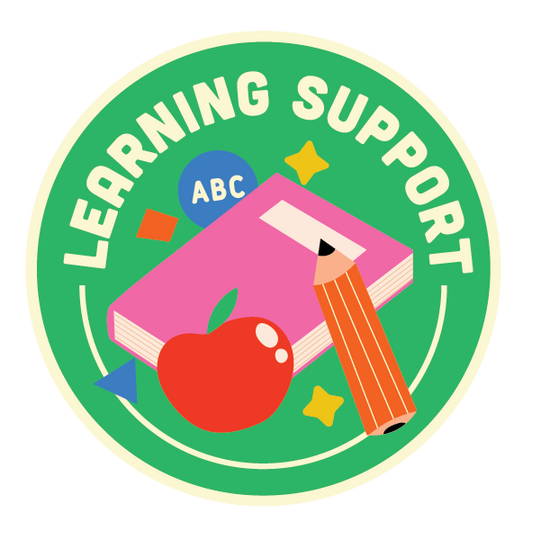
Youth Declaration Articles
- We demand decision-makers to invest in social protection to support the educational journeys of all children and youth, especially girls and young women, refugee youth, young persons with disabilities, indigenous youth, and more, while simultaneously ensuring that effective and efficient strategies be put in place to have out-of-school children and youth back in school
- We call upon decision-makers to recognize and invest in non-formal education programs and organizations, particularly those that are youth-led, as an integral part of the right to education and a key approach to promoting the development of personal and collective values and civic engagement of children and youth
- We call upon decision-makers to invest in future-proof skills development, technical and vocational training, apprenticeships, and other relevant opportunities to ensure access to decent jobs for youth, especially members from vulnerable and marginalized communities;
- We demand decision-makers to provide quality and relevant training, professional development, necessary facilities, appropriate working conditions, and an innovative, safe and enriching environment for teachers, including by raising the status of the profession, and particularly by working with young teachers, women teachers, refugee teachers, and representatives of teachers’ unions;
- We urge decision-makers to invest in the digital infrastructure of education and affordable, dignified, safe, and stable access to digital connectivity for all, to aid learning and close the digital divide.
TET Myanmar's Online Teacher Training and Professional Development Program
This online innovation project has immediately impacted learning and education by enhancing the skills and knowledge of over 4,000 educators, empowering them to create more engaging, inclusive, and effective learning experiences for their students. By focusing on critical areas such as educational technology, cognitive science, leadership, and evidence-based teaching practices, our program has helped teachers integrate technology and innovative methods into their classrooms. As a result, learners benefit from a more dynamic and interactive educational environment that prepares them for the challenges and opportunities of the 21st century.
View Presentation
Sok Rithy Chhuon
Bavet General and technical High School
Cambodia
rithyente@gmail.com
Mini Box Elevator Project
This project introduces simple engineering design as a thinking tool for students to understand and put into practice life skills through project making. The project also enhances students' technical skills, preparing them for multiple career pathways. The main output of this project is a prototype mini-box elevator that can be controlled by PLC Arduino Uno and by using a remote control. Students engaged in this kind of project will develop critical thinking, problem-solving, and analytical skills. They are also allowed to practice creativity and innovation using prototyping and iterations in order to reach the best possible project solution.
Tanim Talino
In the past three years, Tanim Talino has assisted up to 500 Filipino students across 49 cities and municipalities with direct STEM research consultations, improving individual outcomes in secondary research experiences. Students share success stories with their research projects, with some gaining recognition in competitive settings.
Tanim Talino has also partnered with schools for teacher and student training in scientific research. Tanim Talino continues to make educational short-form video content to 50k+ followers on TikTok, establishing an accessible online presence that allows young Filipinos easy access to resources that support them in their STEM research experiences.
View Presentation
Classroom management / ICT in Education / Environmental Education
In collaboration with Human Development under an Australian Grant, the project features training teachers and local mentors on effective classroom management and awareness. The project also does ICT in Education, where the group gives away devices and trains local mentors, female teachers, potentials, school leaders, and adjunto on how to use the device to support the learning activities such as document sharing and information. The project has reached 10/13 municipalities in the country, targeting to cover all the municipalities and reach more users, including students. In the long run, these initiatives will be passed on to the MoE of Timor Leste for institutionalization.
O2 Youth Pathways
The O2 Youth Pathway is designed to help the O2 Youth to be self-reliant through education, employment, and entrepreneurship. It is a pathway that is tailored to the context of the youth, as well as their personal goals. It aims to give them transferrable skills they could use on whatever pathway they wish to follow or create. While the pathway is very empowering for the O2 Youth, it also needs the help of institutions and organizations to strengthen the system that will support the O2 Youth as they move through the pathway.
Make-roscope: Keychain Microscope
The Make-roscope Initiative offers an affordable device that allows students to view micro-organisms on-the-go. This initiative enables individual studying of plant and animal cells without the need for expensive microscopes. Exposing students to the microscopic world piqued their interest in science and technology, increasing the potential for future STEM students. College students can use this as a preliminary tool to verify their research before using a light compound microscope. Additionally, the initiative provides a platform for student organizations to promote and conduct community projects in microbiology. Overall, the Make-roscope initiative encourages scientific exploration and engagement among students.
View Presentation
Work Shadowing Program (Virtual and Onsite)
This program allowed students to build a repertoire of Education and Career Guidance related learning experiences to cater to their diverse interests and aspirations. The program, conducted virtually using technology and on-site, has highlighted the importance of lifelong learning and continued innovation to stay relevant in the face of rapid technological changes to our program partners, community, and stakeholders such as parents and school leaders.
The program also adds value to students’ portfolios when they apply for scholarships through relevant certifications earned from their participation in work shadowing programs. The companies provide valuable learning experiences to students and allow them exposure to professional settings.
Definda Putri Arisna
Content Research Department
Indonesia
defindaputria20@gmail.com / hellodefinda@gmail.com
KIWARI: An Inquiry Smart Module with Investigation Fiction-Case Based as an Approach to Integrative Science, Joyful of Learning, and Learner-Centered Class
This innovation provides alternative science learning modules and methods in the class. The KIWARI learning material is utilized during the actual science class, where science teachers observe and monitor the innovation process. The material adapts inquiry-based methods in teaching and learning Science concepts.
During the project implementation, the Science teachers had the opportunity to observe and capture students' reactions and expressions throughout the innovation session. Students exposed to this learning material showed enthusiasm and interest in learning about the subject content area.
Watch video
View Presentation
Providing Mentoring and Training to Pre and In-Service English teachers in Communicative Language Teaching Approach and Students-Centered Learning Method
This project provides mentoring and training to pre and in-service English teachers in Communicative Language Teaching Approach and Students-Centered Learning Method. The Encouraged, Developed, and Connected Corner (EDC Corner) is an educator’s community that gathers all Timorese educators, in particular English and future teachers of English, to deepen their knowledge in teaching and keep connecting with one another for future development of teaching careers. EDC Corner provides mentoring sessions yearly for English department students in Dili and teacher training for teachers in different municipalities.
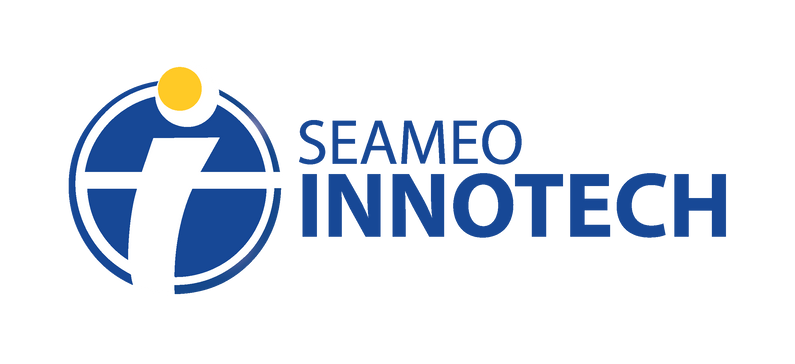
SPONSORS
